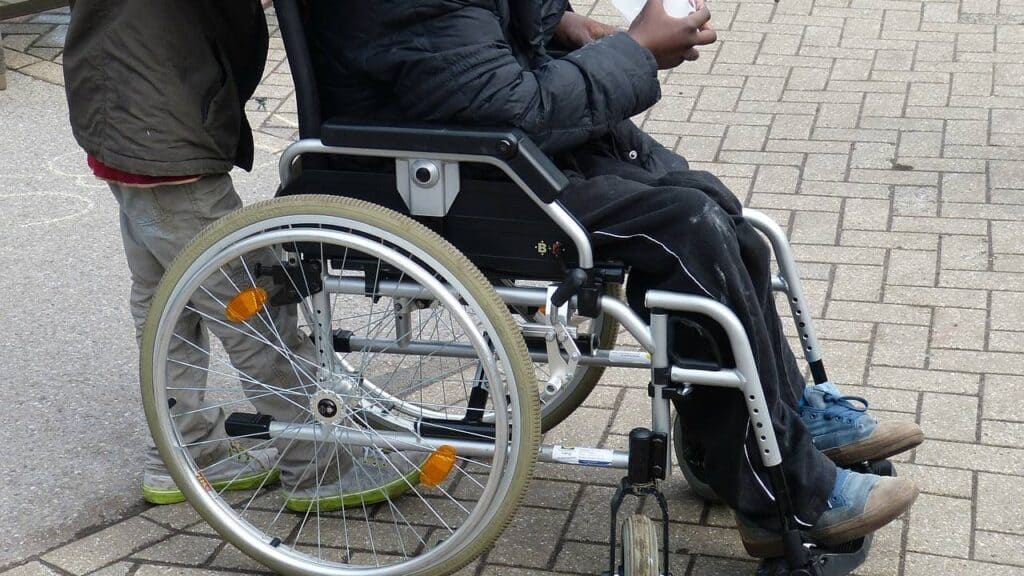Many Social Security Disability Insurance (SSDI) beneficiaries rely on their benefits as their sole source of income. This makes it even more important to use these benefits in the best way possible. So, how can SSDI beneficiaries best use their benefits?
If you are finding it difficult to manage your Social Security Disability Insurance benefits, the best way to use them would be to select a representative payee who can manage your payments for you.
This article discusses in detail the best ways to use SSDI benefits after getting them.
Best Ways to Use SSDI Benefits
If you have not selected a Social Security Representative Payee, you will receive your SSDI benefits directly and not through a third-party person.
You have the right to receive your own Social Security check unless the Social Security Administration (SSA) believes you are incapable of managing or directing the management of your money.
Some people have a payee because the SSA has decided that they need help managing their money. Usually, a representative payee is someone who sees the beneficiary often, knows them as well as their needs, and wants to help them.
If you have a representative payee due to a physical or mental disability and want to become your own payee, you must show the SSA that you are now mentally and physically capable of handling your money yourself.
In most cases, this payment is made in the form of a direct deposit. It is entirely up to you to decide how you will spend your Social Security Disability Insurance benefits because the Social Security Administration will not monitor your spending.
Since SSDI recipients are unable to work, they will likely have to spend most of their benefits on necessities like housing, food, clothing, transportation, medical treatment, and dental care. Nevertheless, that does not imply that the benefits cannot be utilized for other purposes.
Here is how you can use your benefits in the best way possible:
Pay Your Overdue Bills First
There are no constraints when it comes to spending SSDI benefits; nevertheless, it is recommended that you spend them in a responsible way.
You can do this by always paying your bills and other essential monthly obligations before spending your benefits on things such as entertainment, vacations, or luxury goods.
Some common essential monthly expenses are listed below:
- Rental or mortgage payments
- Costs associated with utilities, water, or electricity
- Food
- Costs of daily living
It is also important to remember that if you are receiving Supplemental Security Income (SSI), you must not have assets that exceed $2,000 if you are a single individual or $3,000 if you are married.
Spending your extra cash on luxuries could lead to an increase in your asset count, which could lead to a termination of your SSI payments.
Moreover, you are not permitted to spend your benefits on anything that is against the law, such as illegal substances.
Don’t Overspend Your Backpay

It is common for Social Security disability applicants to face initial denials or a lengthy application process before they are ultimately awarded benefits.
Such claimants may be eligible to receive back pay, a payment awarded for the time beneficiaries spent waiting for their application to be processed.
Your SSDI back pay will start to accumulate the moment you submit your application, and you can expect to get back pay in one lump sum amount after your claim is approved.
How much money you could get in back pay is dependent upon the “established onset date,” or the time when the SSA received your application and determined that your disability began.
As soon as you receive your backpay amount, you should make sure that all of your essential bills, living expenditures, and essential house upgrades for your disability are paid in full before you make other purchases.
Furthermore, if a SSDI beneficiary is enrolled and receiving private disability insurance, it is always best to check and ensure that any potential reimbursement for benefits to the private disability insurance are paid back in full before making any other purchases.
Home and Vehicle Upgrades
You might want to consider making adjustments to your home in order to alleviate the difficulties you experience if you have a disability that restricts your movement. For example, you may consider:
- The installation of ramps at entrances
- Lowered kitchen and bathroom counters
- Bathtub or shower rails
- Raised Toilet seat
- Shower chairs
- A car lift
- Any additional wheelchair-accessible design elements that cater to your needs
Enroll in Medicare
The majority of SSDI beneficiaries can enroll in Medicare 24 months after they first become eligible. The waiting time is not applicable for those who have end-stage renal disease or amyotrophic lateral sclerosis (ALS).
Medicare serves disabled people in the same way it serves eligible seniors, except for the waiting time. If you paid into Medicare while you were working, you probably won’t have to pay for Part A, which covers hospitalization.
But if you want to enroll in a prescription medication plan (Part D) as well as Part B (doctors and outpatient treatments), you’ll have to pay a monthly fee.
Can I have a Saving Account While Receiving SSDI?
You are allowed to have a savings account if you are receiving Social Security Disability Insurance or Supplemental Security Income. However, depending on the kind of benefits that you receive, there may be restrictions on the amount of funds that you are allowed to have.
The SSDI program requires applicants to have work credits as well as a medical condition that renders them unable to work for at least one year or that is expected to result in death.
While receiving SSDI, there are limitations on the amount of money you may make from your employment, but there are no restrictions on the assets you can own. You can save as much money as you want in a savings account.
How a Representative Payee Can Help You Use SSDI Benefits

In cases where an SSDI beneficiary is unable to handle their benefits, the Social Security Administration has the authority to designate another individual to act as a representative payee.
It can be challenging to handle your finances with a disability, and payees offer a helpful service to people who are unable to handle their own financial matters.
Payees are typically members of the family or close friends, but they can also be volunteers. The payee is obligated to ensure that the benefits are used in a manner that serves the disability recipient’s best interests.
The payee must pay for all the necessary expenses at present and save any funds that are left over in a savings account. The Social Security Administration requires that representative payees maintain careful records of all benefits received and disbursed.
Conclusion
If you’re receiving SSDI benefits and are unsure how to manage them, having a representative payee can be beneficial. They take on the responsibility of ensuring your benefits are spent wisely, providing careful guidance for your financial well-being.





